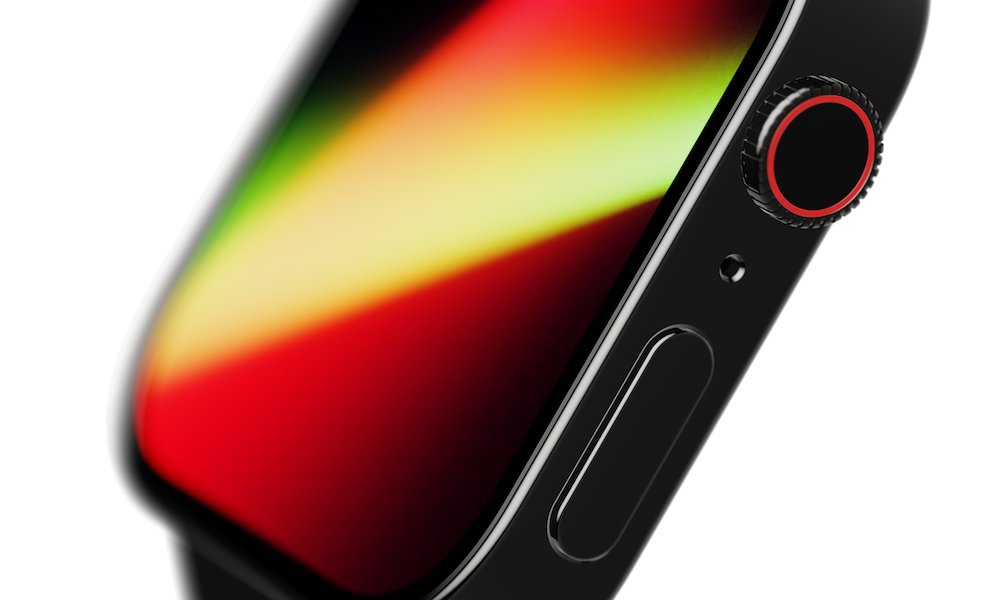New Apple Watch Series 8 Body Temperature Sensor Depends on Apple Getting Its Algorithms Right
 Credit: Volva LD / Twitter
Credit: Volva LD / Twitter
Toggle Dark Mode
Not surprisingly, it seems the most significant challenge Apple faces in adding new health features to the Apple Watch isn’t the sensor hardware but rather figuring out the algorithms to analyze the data and make sense of it.
For instance, it was nearly a year ago that we first heard reports from Bloomberg’s Mark Gurman that Apple was considering a new body temperature sensor for the Apple Watch Series 7. Of course, we know that didn’t happen, and now we’re hoping to see it this fall on the Series 8 instead.
Gurman hedged his bets last year, saying that the body temperature sensor might not arrive on the Series 7, and now analyst Ming-Chi Kuo has offered us a more detailed explanation for exactly why it didn’t make the cut.
According to Kuo, Apple had the hardware ready to go, but the problem was that it couldn’t get the algorithms working well enough to provide a reliable body temperature.
The problem in this case, Kuo adds, is that “skin temperature quickly varies depending on outside temperature,” which means that trying to measure someone’s core body temperature through the skin — especially from a smartwatch that gets worn at an extremity — requires “an excellent algorithm.”
Apple isn’t the only company facing this challenge. Despite several reports suggesting that Samsung’s Galaxy Watch 5 will feature a body temperature sensor when it arrives later this year, Kuo says “algorithm limitations” may hold that back as well.
Accuracy Is Critical
It’s not the first time we’ve heard of Apple running into problems like this with its wearable.
Multiple reports have indicated that Apple has spent several years working on blood pressure monitoring. However, while it seems to have figured out how to add a blood pressure sensor to the Apple Watch, it hasn’t come up with a way to make it work accurately and reliably.
There was a report that blood pressure monitoring nearly made it into the Apple Watch Series 6 in 2020 but had to be scrapped at the last minute as it was “highly inaccurate.”
Since Apple is trying to position the Apple Watch as a device that can improve your health and even save your life, it’s understandable that providing inaccurate health data is worse than providing no health data at all.
Features like the blood pressure sensor won’t arrive until Apple can get it right, and it seems that a large part of that accuracy is developing the kind of software algorithms that can interpret what’s coming from the sensors.
While body temperature is arguably a less critical measurement than blood pressure, it still needs to be accurate enough for its intended purpose.
This may also explain why Apple is considering a more limited purpose for the body temperature feature initially. An update from Gurman last month indicated that Apple is hoping to have the body temperature sensor ready for this year’s Apple Watch, but it’s not going to be for everyday use. Instead, Apple plans to use it to power a new fertility planning feature.
This aligns with what we’ve heard from The Wall Street Journal. Most importantly, it would be an easy way for Apple to introduce the sensor without needing a higher degree of accuracy.
Recent reports have suggested that Apple has given up on the idea of providing precise numbers when it comes to things like body temperature or blood pressure. Instead, the algorithms and apps behind these sensors will likely just provide general guidelines, letting users know when their readings are abnormal, and they should seek medical attention — or try to conceive a baby in the case of fertility planning.
Still, there’s no guarantee that Apple has solved this algorithmic problem yet. As Kuo notes, it not only has to work, but it has to “meet Apple’s high requirements” and do so before the Apple Watch goes into mass production.
[The information provided in this article has NOT been confirmed by Apple and may be speculation. Provided details may not be factual. Take all rumors, tech or otherwise, with a grain of salt.]







